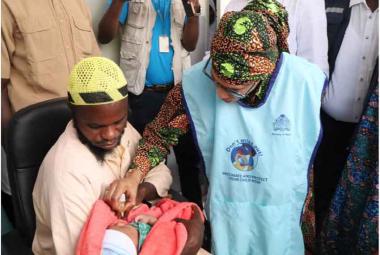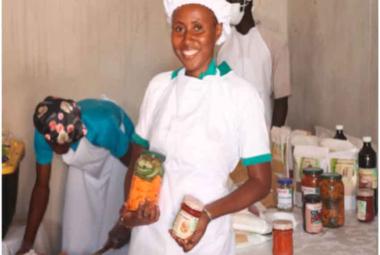By Isatou Fofana
The Deputy Permanent Secretary, Ministry of Health (MOH) has underscored the importance of community engagement and sensitisation on the misuse of antibacterial resistance drugs as they can have serious consequences for individual health, public health, and the environment.
Mr. Babanding Sabally was speaking during the Antimicrobial Resistance Week commemoration, also known as World Antibiotic Awareness Week.
The occasion is observed yearly and the Ministry of Health marks the week to raise awareness on the global problem of antimicrobial resistance – the misuse and abuse of antimicrobial drugs.
The goal for this year’s celebration is to promote responsible use of antibiotics and other antimicrobial agents to help combat the rise of drug-resistant infections.
Mr Sabally said it is also important to encourage the use of alternative treatments when appropriate, and advocate for the responsible use of antibiotics in order to help combat the growing issue of antibiotic resistance.
He stressed the need for healthcare providers and patients to use antibiotics responsibly and only when necessary in order to preserve their effectiveness for future generations.
Dr Njundu Jatta, pharmacist at the National Pharmaceutical Services, highlighted the importance of raising public awareness about the risks and the consequences of antibiotic resistance.
“It is crucial for patients to understand the importance of completing the full course of antibiotics as prescribed and to avoid taking antibiotics unnecessarily”, he noted.
The Principal Lab Scientist, MOH, Harouna Jallow said it is essential that relevant stakeholders work together to address this problem by promoting responsible use of antibiotics, developing new treatment options, and improving infection prevention and control measures.
According to estimates by the World Health Organisation, at least 700,000 people die each year due to drug-resistant infections. These include deaths from infections such as drug-resistant tuberculosis, urinary tract infections, bloodstream infections and pneumonia






